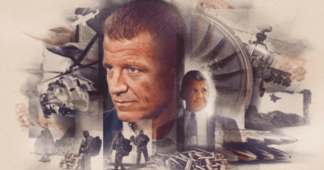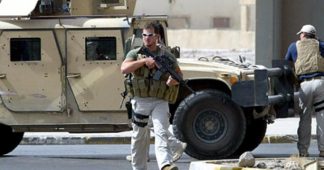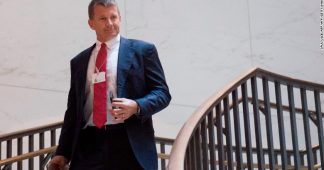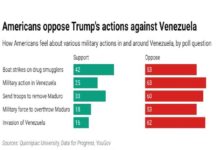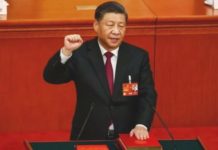Feeding on tragedy: Ex-Blackwater boss Erik Prince squeezes profit from mad scramble at Kabul airport, charging $6.5k for escape
By Damian Wilson*
Aug. 25, 2021
As terrified Afghan civilians look to flee the Taliban, notorious gun for hire and billionaire ex Navy SEAL Erik Prince reportedly offers private escape flights at $US6,500 a seat. Immoral? Maybe. Just don’t call him a mercenary.
The message is clear to those trapped in Kabul: if you’re looking to escape, get on a flight this minute before it’s too late, and the urgency in that command is music to the ears of notorious military contractor Erik Prince.
Because, according to news reports, he’s charging desperate, terrified passengers $U6,500 just to get into the Afghan capital’s airport and onto a flight to safety. If they’re trapped in their homes and need safe passage to the airport as well, that’s gonna cost more. After all, he’s not running a charity. That’s for the do-gooders.
Charity is a word not often used in the same sentence as the name of Erik Prince. The founder of what was once the world’s largest private military contractor, Blackwater, is all about the Benjamins and has gone about adding to his immense inherited wealth by doing business in the most miserable economic theatre known to man: war.
No longer CEO of the company he built from the seed money left to him by his billionaire dad Edgar, who died in 1995, it seems Prince still has a taste for squeezing money out of misery and, one way or the other, Afghanistan was going to be milked.
Intent on earning a slice of the action, he proposed sending in few thousand private contractors – his, of course – instead of US troops to sort out the Taliban but when there were no serious takers for that he suggested instead that President Trump install a “viceroy” supported by a private army – again, his, of course – just like the East India Company and its presidency armies all those colonial years ago.
While this sort of whacked out idea might be expected to be found in the darkened rooms of those smoke-filled clubs inhabited by Colonel Blimp types, Prince was given space in the Op-ed pages of the Wall Street Journal for his wild musings.
Not that former Navy SEAL Prince would see anything wrong with his plans, of course. He has his own take on the world.
When accused of operating as a mercenary while facing a House Committee on Oversight and Government Reform, the gun for hire took offence, saying, “The Oxford dictionary defines a mercenary as a professional soldier working for a foreign government. We have Americans working for America, protecting Americans.”
Well, excuse me. Call it what you like, but it doesn’t escape the fact that Prince’s line of business is not everyone’s cup of chai.
Back in 2007, when he was still the boss, a group of Blackwater contractors working for the US government in Iraq opened fire with machine-guns, grenade launchers and a sniper on a crowd of unarmed people in a square in Baghdad. At least 14 Iraqi civilians (the Iraqi authorities put the number at 17), including two children, were killed and many more wounded in the attack known as the Nisour Square massacre.
After a tough legal fight, the US Department of Justice finally managed to win convictions against four of the guards in court in 2014 and they were convicted of manslaughter, one of murder. But that all counted for nothing really when President Trump pardoned the four men involved in the massacre, in December last year
Prince said at the time that the case had been heavily politicised and that “anti-war Left went after the troops in the Vietnam war, this time they went after contractors” and that, if the contractors had been in US military uniforms, they would never have faced trial.
Maybe so, but that doesn’t mean they were right to open fire indiscriminately on innocent civilians and the episode turned Blackwater so toxic, it never really recovered, even going so far as changing its name to Academi in order to avoid the stink.
Prince might look like one of the guys from the golf club, with his neat suits and hairstyle so popular among the ex-military, but he’s more than that. He’s a businessman whose realm is the battlefield, not the boardroom, where fear, chaos and death provide endless opportunities to men with a malfunctioning moral compass for making money. He feeds on tragedy.
The sad truth is, as his actions in Kabul show so clearly, he’ll never be short of clients
* Damian Wilsonis a UK journalist, ex-Fleet Street editor, financial industry consultant and political communications special advisor in the UK and EU.
Published at www.rt.com
